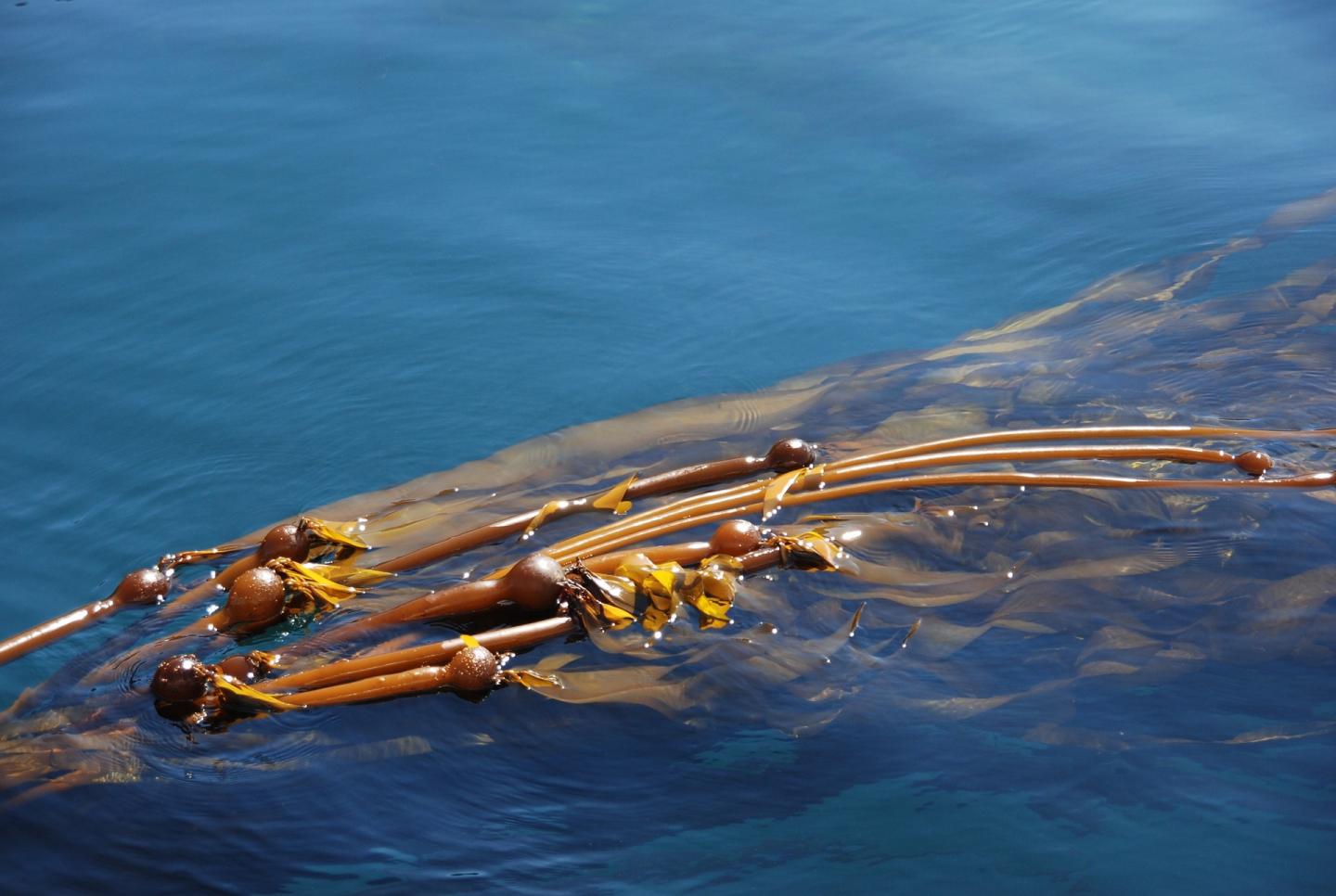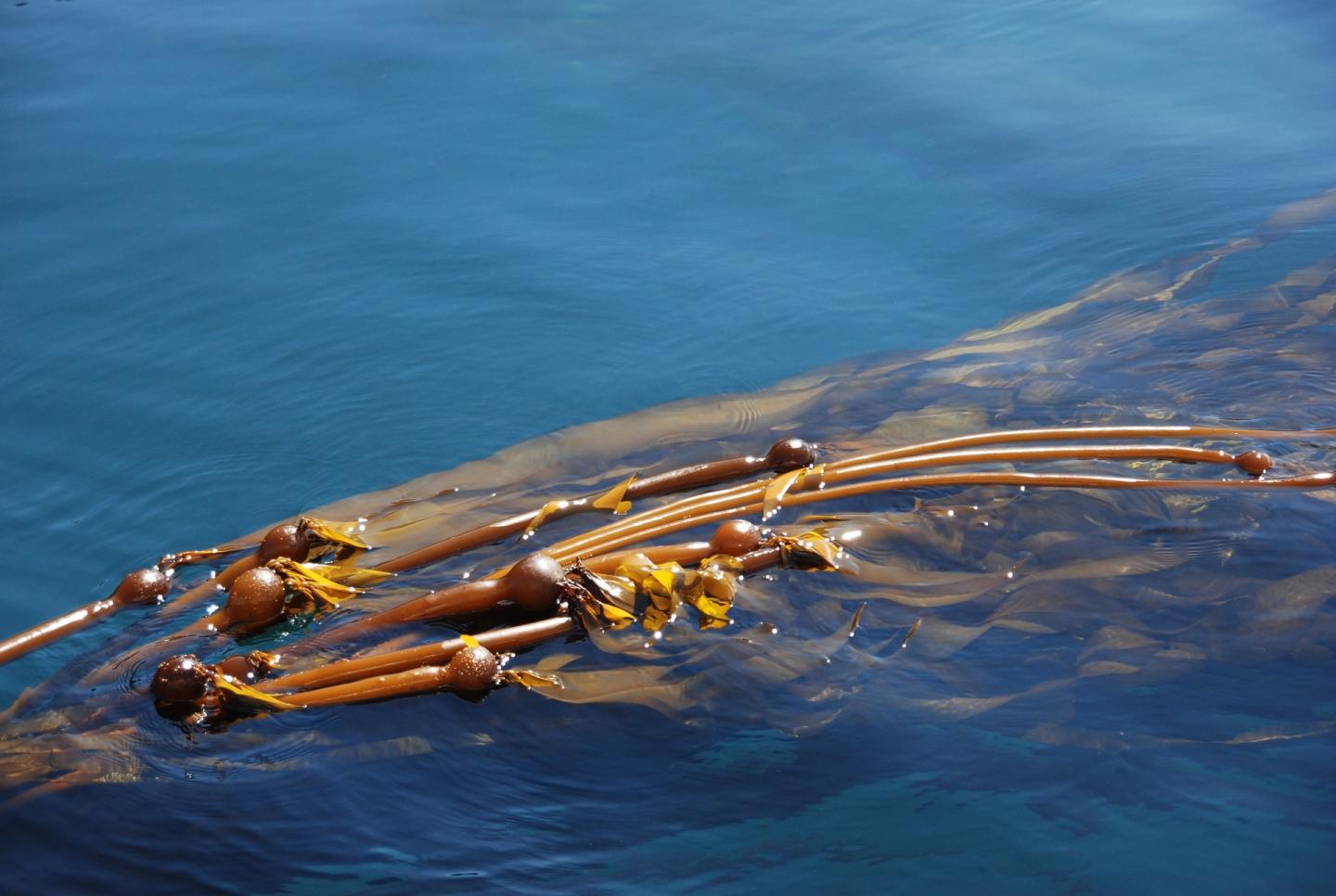
Credit: Public domain
Palo Alto, CA– Algae dominate the oceans that cover nearly three-quarters of our planet, and produce half of the oxygen that we breathe. And yet fewer than 10 percent of the algae have been formally described in the scientific literature, as noted in a new review co-authored by Carnegie's Arthur Grossman in Trends in Plant Science.
Algae are everywhere. They are part of crusts on desert surfaces and form massive blooms in lakes and oceans. They range in size from tiny single-celled organisms to giant kelp.
Algae also play crucial roles in human life. People have eaten "seaweed" (large macroalgae) for millennia. But algae can also represent a health hazard when toxic blooms suffocate lakes and coastlines.
Despite the pervasiveness of algae and their importance in our planet's ecology and in human health and nutrition, there is so much that scientists don't know about them. This lack of knowledge is mostly due to limited support and the need to develop methodologies for probing the various algal groups at the molecular level.
The term 'algae' is used informally to embrace a large variety of photosynthetic organisms that belong to a number of different taxa. To effectively reveal the mysteries of each of these organisms would require creating research processes that are effective for each of them (what works with one often doesn't work with another).
However, some of the latest molecular techniques have allowed scientists to elucidate major genetic processes that have shaped algal evolution. And this improved knowledge has implications beyond basic scientific discovery.
For example, in the future, algae may be used to produce biofuels or to synthesize high-value therapeutic compounds or plastics. Furthermore, with an improved understanding of metabolism in the various algal groups, scientists can better develop strategies to exploit algae for the production of materials–using them as "cellular factories," in a sense.
Many studies have shown that algae can also adapt to changing environmental conditions. But what are the limits of this ability? And how will the effect of climate change on the world's oceans impact algae and the oxygen that we derive from them?
"In the process of reviewing the state of algal research, we feel that we are on the cusp of a revolution in understanding this group of organisms, their importance in shaping ecosystems worldwide, and the ways in which they can be used to enrich mankind," said Grossman.
###
Other co-authors on the review are Juliet Brodie of the Natural History Museum in London, Cheong Xin Chan of the University of Queensland, Oliver De Clerck of Ghent University, J. Mark Cock and Susan Coelho of Sorbonne Université, Claire Gachon of the Scottish Marine Institute, Thomas Mock of the University of East Anglia, John Raven of the University of Dundee and the University of Western Australia, Alison Smith of Cambridge University, Hwan Su Yoon of Sungkyunkwan University, and Debashish Bhattacharya of Rutgers University.
The manuscript is the outcome of a symposium hosted in June 2016 by The Royal Society
The Carnegie Institution for Science (carnegiescience.edu) is a private, nonprofit organization headquartered in Washington, D.C., with six research departments throughout the U.S. Since its founding in 1902, the Carnegie Institution has been a pioneering force in basic scientific research. Carnegie scientists are leaders in plant biology, developmental biology, astronomy, materials science, global ecology, and Earth and planetary science.
Media Contact
Arthur Grossman
[email protected]
650-325-1521 x212
@carnegiescience
https://carnegiescience.edu/
############
Story Source: Materials provided by Scienmag





